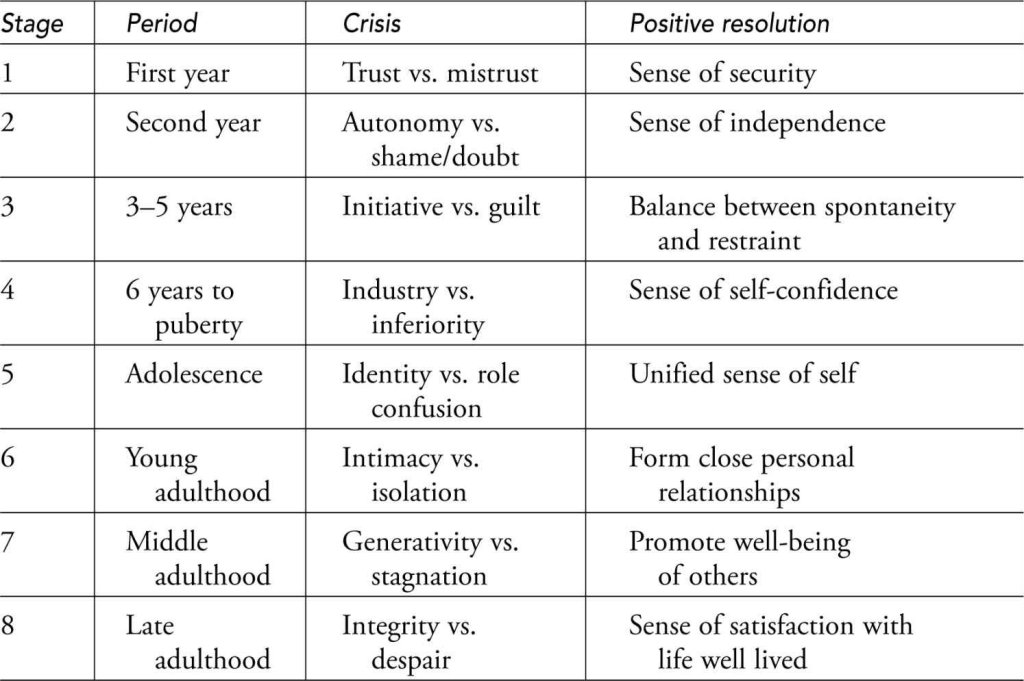Erik Erikson (1902–1994), born in Frankfurt, Germany, was a psychoanalyst and psychiatrist known for his multistage theory on the social development of human beings.
Erikson’s Childhood and Society (1950) introduces the eight stages of psychosocial development and the concept of an “identity crisis” and is considered a classical text by educators, psychologists, and sociologists. He also produced other prominent works, such as psychobiographies of Martin Luther (Young Man Luther: A Study in Psychoanalysis and History, 1958), Mohandas Gandhi (Gandhi’s Truth, 1969), and The Life Cycle Completed (1982).
Through his association with Anna Freud (1895–1982), the daughter of Sigmund Freud (1856–1939), the father of psychoanalysis, Erikson became interested in the influence of culture and society on child development.
He produced studies of adolescence and young manhood in the Dakota, a Native American tribe, in a context in which traditional culture was vanishing and values were being redefined.
He theorized eight ages of development that children went through, during which they develop the foundation for emotional, social, and mental strength via their social interactions with significant adults, as well as assimilate to the culture of their own community.
Each stage is sequentially followed and is dependent on the prior one, all of which have a crisis that a child needs to overcome in order to gain confidence and self-esteem. He called these stages the “epigenetic principle,” meaning they are predetermined and sequential. Erikson’s theory also challenged the view that personality formation was completed in childhood.
Carrying out tasks beyond their stage of personality development, the child could be denied an opportunity for his needs to be met, which may result in negative outcomes that could affect his schooling and later his successful participation as an adult in society.
